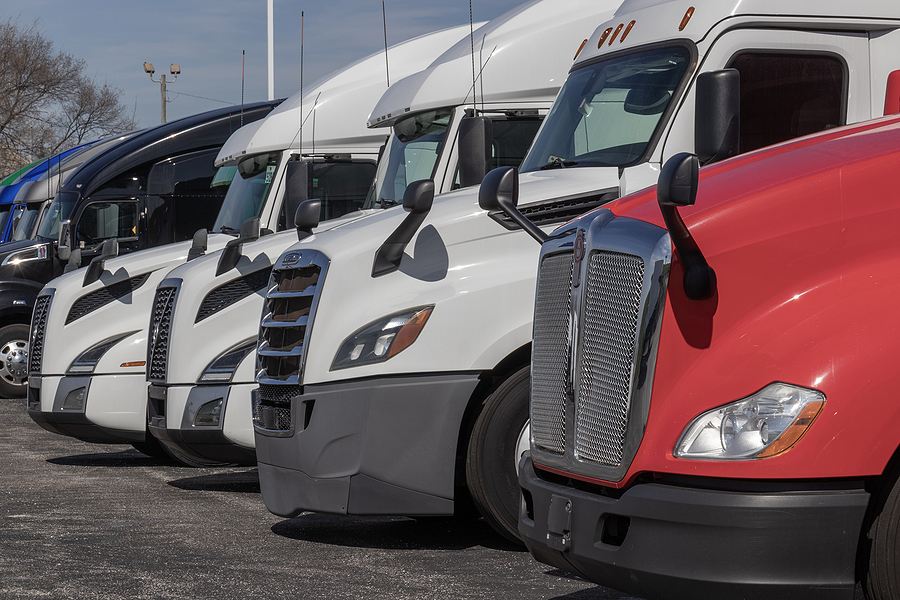When it comes to truck accidents, one crucial tool that investigators can use to determine the cause of the accident is the so-called “black box,” also known as an electronic control module (ECM). Black boxes are also sometimes called event data recorders (EDRs) or electronic control modules (ECMs).
Airplanes have used black boxes for decades. But in recent years, they’ve also become standard in many large trucks. The following is a look at what black boxes are, how they work, and whether or not semi-trucks still use them.
A Sand Law attorney will use black box data and other evidence when investigating the truck accident that led to your injury. If you want to learn more about how we can help you get the money you deserve, contact us online or call 651-291-7263 for a free consultation.

What is a Black Box?
A black box is an electronic device that records information about the truck’s operation. This information can include speed, acceleration, braking, and engine performance, among other things.
Investigators often use black boxes to determine the cause of accidents. By analyzing the data stored in the black box, investigators can often determine:
- How fast the vehicle was traveling at the time of the accident.
- Whether or not the driver applied the brakes.
- Whether or not the driver was wearing a seatbelt.
Do Semi-Trucks Still Use Black Boxes?
Yes, many semi-trucks still use black boxes today. In fact, black boxes have become increasingly common in the trucking industry in recent years. This is partly due to regulations from the Federal Motor Carrier Safety Administration (FMCSA), which requires certain commercial vehicles to be equipped with EDRs.
The FMCSA regulations require that EDRs be capable of recording a wide range of information, including vehicle speed, engine RPMs, brake status, and more. In addition, the regulations require that EDRs be able to record data for at least 14 hours of driving time.
What Information Can You Pull From a Black Box?
The specific information that investigators can pull from a black box can vary depending on the type of vehicle and the manufacturer of the black box. However, some of the most common types of data that can be recorded include the following:
- Vehicle speed: This is one of the most critical pieces of data from a black box. By analyzing how fast the truck was moving before the accident, investigators can often determine whether or not the driver was speeding.
- Engine RPMs: By looking at the engine RPMs, investigators can determine whether or not the driver was accelerating at the time of the accident.
- Brake status: The black box can also record whether or not the driver applied the brakes before the accident.
- Seatbelt use: Many black boxes can record whether or not the driver or passengers were wearing seatbelts.
- Airbag deployment: If the vehicle has airbags, the black box can record if they deployed during the accident.
Use Black Box Data as Evidence
Black box data can often serve as evidence in truck accident cases. In fact, black box data can be some of the most critical evidence in these cases, as it can provide valuable information about the cause of the accident.
However, it’s important to note that the use of black box data as evidence is not always straightforward. In some cases, an expert may need to analyze the data. That expert will then explain the data in a way the jury can fully understand. In addition, there may be legal issues surrounding the use of black box data as evidence. For example, the court may not allow the evidence if the trucking company didn’t consent to provide the data.
Other Evidence Used in Truck Accident Cases
While black box data is a valuable tool in truck accident cases, we’ll still use other types of evidence. Other types of evidence investigators use include the following:
- Eyewitness testimony: Witnesses to the accident can provide valuable information about what happened.
- Police report: Police reports can provide important details about the accident, including the location, time, and circumstances of the crash.
- Physical evidence: Physical evidence, such as tire marks on the road or damage to the vehicles involved, can provide important clues about what happened.
- Medical records: If anyone suffered an injury in the accident, their medical records could provide important information about their injuries and the treatment they received.
- Maintenance records: If the accident occurred due to a mechanical failure, maintenance records could provide important information about whether or not the vehicle was properly maintained.
How Can Sand Law Help You?
It’s important to seek legal help as soon as possible. The team at Sand Law has years of experience representing clients in truck accident cases, and we can help you navigate the legal process and protect your rights.
Here are just a few of the ways that Sand Law can be of assistance:
- Investigating the accident: We’ll work with accident reconstruction experts to gather and analyze all available evidence, including black box data, witness statements, and police reports.
- Negotiating with insurance companies: We’ll work with the insurance company on your behalf to ensure that you receive the compensation you deserve.
- Representing you in court: If necessary, we’ll represent you in a court of law and fight for your rights.
- Providing support and guidance: We understand that being involved in a truck accident can be a traumatic experience. We’ll provide you with the support and guidance you need to navigate the legal process and move forward.
Contact an Experienced Truck Accident Attorney ASAP
If you’ve been involved in a truck accident, don’t wait to seek legal help. The team at Sand Law will work tirelessly to help you obtain the compensation you have coming. Contact us online or call 651-291-7263 to schedule a consultation and learn more. We look forward to working with you.

